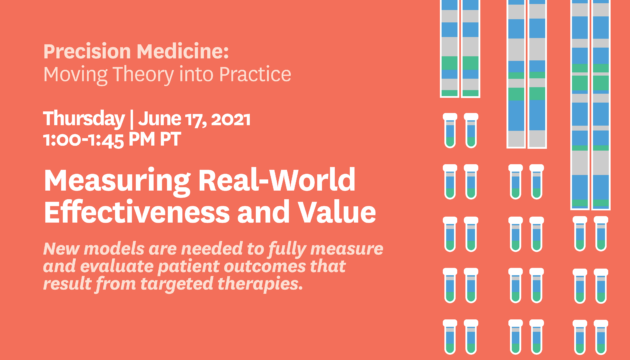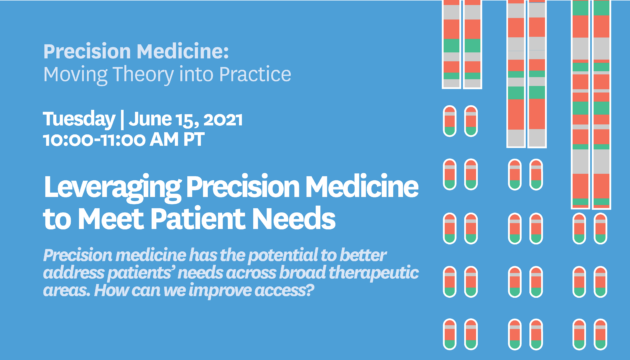Chronic Disease
Our work in Chronic Disease
-
Measuring Real-World Effectiveness and Value
Precision therapies are often approved based on small trials, in specialized settings, and using biomarkers as endpoints. Thus, despite their potential high cost, the evidence of value is lacking which makes real-world evidence crucial.
-
Leveraging Precision Medicine to Meet Patient Needs
Precision medicine promises to reduce adverse side effects and time-consuming trial and error processes, but many patients do not know what it is and providers struggle to leverage it effectively.
-
Cost- Effectiveness of Total State Coverage for Hepatitis C Medications
A Medicaid-Medicare partnership could cover lifesaving hepatitis C medications — and still save $1 to $1.1 billion over 25 years.
Categorized in -
Targeted Therapies Linked to Improved Outcomes for Advanced-Stage Breast Cancer Patients
Targeted therapies accounted for about 90% of new active substance approvals in oncology between 2011 and 2018.
Categorized in -
Comparison of Direct Oral Anticoagulants Versus Warfarin in Patients With Atrial Fibrillation and Bioprosthetic Heart Valves
Use of direct oral anticoagulants gradually increased since 2011, with a significant upward in trend after a stay-at-home order related to COVID-19.
Categorized in -
Congress Should End Dialysis Companies’ Third-Party Games with Insurance Coverage
A new op-ed in STAT highlights practices by dialysis facilities where they try to push patients into individual market plans by financing patients’ premiums for those plans
-
How Sick Is My Cohort of Patients? A General Approach to Identify Chronic Conditions
This presentation discusses a SAS(r) macro that applies Chronic Conditions Warehouse-like rules to any data set either from insurance claims, or electronic health records (EHR) containing a full picture of diagnoses and procedures from patient medical visits.
Categorized in -
Association Between Exenatide Use and Incidence of Alzheimer’s Disease
Exenatide use is associated with a reduced incidence of AD among Medicare beneficiaries aged 65 years or older with type II diabetes.
Categorized in -
Associations of Intensive Lifestyle Intervention in Type 2 Diabetes With Health Care Use, Spending, and Disability
Is an intensive lifestyle intervention for type 2 diabetes associated with long-term health care use and Medicare spending?
Categorized in -
Making Progress in Cancer Diagnostics: Clinical Practice and Policy
Join the Health, Medicine and Society Program of the Aspen Institute and the USC Schaeffer Center for a webinar on new clinical advances in cancer screening and the policy issues surrounding access to and adoption of these advances.








